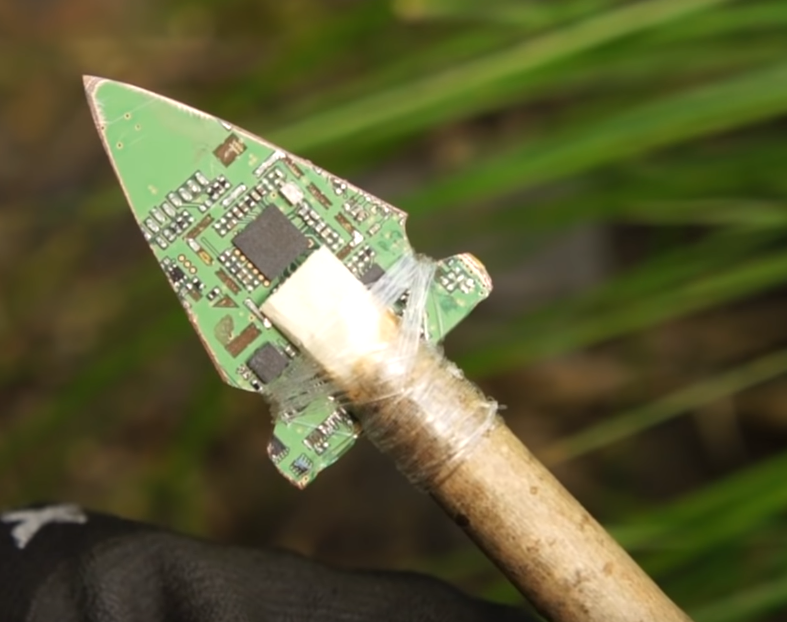Basically, I took on too many miles too quick. And boom knee pain even when walking now. I don’t want to stop moving entirely, but I’m just not sure what I should be during this downtime. I’m pretty new to running so only been doing it for about 2 weeks and I’m a little heavier, so it probably beat my legs up. But I love running and don’t want to give it up.
I’m not a doctor, I can only speak from personal experience.
- Stop running. Yeah, it sucks, but it won’t heal unless you do.
- It’s going to take a couple months, probably, to be able to run on it again.
- Walk, but only once pain is gone/very minimal.
- RICE - rest, ice, compression, elevation.
- You can try ibuprofen. It’ll help with inflammation.
- Don’t start being active until pain is mostly/completely gone, and don’t start running until pain is gone. It WILL come back, and you’ll start all over again, if you start too soon.
- Try other low impact activities like swimming.
Whenever you start back up, start really slow. I usually go with 1 slow mile for a couple weeks then start adding half a mile every couple weeks, depending how the injury feels. As much as it kills me, speed comes later, distance too.
If the pain isn’t gradually improving over the next week or two, then go see your doctor. From personal experience, they will just tell you to stop exercising.
RICE is somewhat outdated. The alternative names (MOVE, METH, MEAT) have not sorted themselves out yet, but the summary is:
- Inflammation is the body healing itself. Ice and NSAIDs (ibuprofen) may help with discomfort but they slow healing.
- Non load bearing movement is better than rest for anything short of a fracture or catastrophic injury. Blood flow is healing.
- Elevation is still beneficial the further down the leg you go. Can promote blood flow if it has no where to go.
https://thischangedmypractice.com/move-an-injury-not-rice/ https://www.lifemark.ca/blog-post/treating-acute-injury-go-meat-over-rice https://www.synctherapy.ca/meth-the-alternative-to-the-rice-method/
-
I guess technically, yeah, but it’s the immune systems response to an injury or virus/bacteria. If you can reduce the inflammation, the immune system is still working, you’re just in less pain. Plus, if it’s in/on/around a tendon/bursa, inflammation is just going to continue the issue/pressure. Again, not a doc, just deal with this shit a lot, over MANY systems in my stupid body
-
Yeah that’s why I recommended low impact activities like swimming.
-
Not sure what you’re trying to say. Sorry.
Also, the A in MEAT is analgesics, so not really sure why you singled out nor taking ibuprofen, as it’s part of the recovery process you’re recommending.
-
Thanks! This is what I was looking for. And it really sucks, I was up around 3 miles every other day. And I’m sure the dr is going to tell me to stop for a while. Also doesn’t help I work 12hrs a day in steel toes on concrete. So I really don’t get a good break for my legs. Idk man, this situation just really sucks
I know! I’m right there with you. I’m super prone to tendonitis/bursitis, so I feel your pain. I’m actually dealing with some posterior tibialis tendonitis right now. As much as it kills me to say, resting is the ONLY way to make it stop.
If you’re stuck standing all day, it may help to wrap your knee, until the inflammation subsides a bit.
Also, I know there isn’t any scientific evidence (or at least I haven’t seen anything peer reviewed yet) for KT tape/Kinesiology tape BUT, depending where the issue is, it’s like fucking magic (I could never get it to help with Peroneal tendonitis). IDK how it works, or why, but it helps me, when I get it placed correctly. May be worth buying a roll, going to youtube, and trying it out. It won’t make you recover quicker, but may make it easier to tolerate, while you heal.
Just got back dr says nothing for 2 weeks, no running, no cycling. So I’m at a loss right now. I might try and do some very easy walking just to keep blood flowing. I don’t want to just sit and do nothing all day every day.
I would recommend sitting on your ass until there’s no pain. Or at least very little. I’m stubborn as shit and I’ve tried to “just do a little” enough times to know.
Well… shit
You should talk to your doctor about it.
Edit: downvotes from salty individualists. You’re not an expert. If you were, you’d give your expert opinion.
I actually have an appointment here in about 2 hours for this exact reason. Just seeking if anyone else has had any experience with this kind of injury, and what they did during their down time to stay active.
My dr recommended physical therapy. I went to an orthopedist. Told me to jog/walk versus run and reduce length/distance. Recommended to continue doing squats and deadlifts and to reduce weight. Add more stretching and planks. Prescribed an NSAID called Meloxicam. I haven’t started therapy yet but I am walking 3 miles per day to stay active at 3.5-4 mph. Jogging doesn’t feel comfortable. I ordered a brace to see if that will help.
Oh yeah definitely. I usually run/walk. I try not to jog, because of how hard the impact is on my knees. When I did interval running(sprint for so long, then walk for so long) I never hurt this bad. And because my running doesn’t make me hit the pavement as hard I never had issues. It was when I went to jogging that everything hurt. But I’m definitely gonna do some walking lightly to stretch and keep things moving.
Glad to hear it. Just making sure.
Seconding “talk to your doctor.” Although if I were in your situation I would just take a week off and try again.
Also, are you using a program like couch-to-5k? That has a bunch of walking parts to keep you from going too hard at first.
You may need to drop some ego and accept that you need to start slower and have patience to get to where you want to be.
I’ve found that doing weighted squats (I use the StrongLifts 5x5 barbell program) helps build my quads and glutes. That, in turn, helps my knees because those muscles take the strain off the knees when running. But that is probably more helpful once you are logging more miles.
I’ve been thinking of going to the gym for strength training, I’m pretty new to all this so haven tbeen sure what to work on to help with the running. Also I believe I’ve got some pretty weak glutes and hip flexor. But when i started running my back pain disappeared so I thought just that would help
Exactly, just to add to this, strength training in general is key to avoiding injury, especially for beginners. Many of the muscles you need to run properly may be a bit weak, which can screw up your form, causing damage to other muscles and joints.
So things like squats, deadlifts, hip abductions, lunges, calf raises, etc. will greatly reduce the risk of injury. Also will give you a fantastic ass.
I did squats and deadlifts the other day and BIGGEST issue is keeping my glutes tight. Every thing else does what it’s supposed to during the lift but my glutes are just not keeping up
I hear you, man. I have super weak glutes, so I’ve made it a point to focus on that booty when I hit the gym.
You mind if I DM you? I have some more questions, and I don’t want to fill up an entire thread with my dumbness.
yeah go for it. No idea how messages work in Lemmy, so good to test it out.
Yeah I got an appointment here in an hour or so. Also no program, I just went into it blind. And I listened to my body, ran only when I felt good physically. Just monday went for a nice easy 3mi and halfway through my knee just lit up with pain. Also no ego actually, just got ahead of myself and fell in love with running and took it too far too quick. Now here I am looking for alternatives while I heal
Don’t worry, pretty much every runner I know has gotten some sort of minor injury in the beginning due to starting with too much too early.
Swimming is a good recuperative option. The worst I ever had such was just after the first marathon which was more run the first half, limp the second. Pay attention to what feels normal for you, I’m a 230+ LB person myself and have found that anything upwards of 10 miles starts really running the risk of being put down for a few days after. Good proper running shoes that fit your stride are a big factor too. If you’re one to keep up on the ball of the foot having a high heel to it helps level out the impact, versus those that run more flat. There’s a lot of weird mechanics to running, but at the start just taking a jog down the street and actively think about just how you run can give a lot of hints.
Ugh, I love swimming. But sadly we don’t have an actual swimming place here. We have an aquatic center but it mainly a miniature water park
Try backwards walking, and when the pain has gone away try tibialis raises. Strengthening the tibialis will help handle the impact from running
I have gone through a similar thing. I cannot run due to being old and having really bad knees. I can, however, walk a lot, which is something I enjoy very very much. I recently hurt my foot and really can’t walk for the time being beyond just day to day stuff…no five mile walks for the foreseeable future.
I’d recommend finding new exercises that don’t aggravate your knee for now. My foot injury has got me back into lifting weights (nothing crazy, more reps than massive weight) and having a new situp / pushup routine every morning. I’ve been enjoying my newly acquired extra upper body strength.
Sorry about your knee. I hope you have a fast recovery
Thanks I appreciate it. I’m trying my best to take it as easy as I can. Just trying not to aggravate my knee. Hoping to get back out there Wednesday after next. Doc told me 2 weeks
Obviously, it’s impossible to know from here, but I had a knee flare up that took ages to recover from. I couldn’t run and walking, getting up/down from chairs was painful.
The thing that helped was seeing a physio. I’d tried all kinds of voodoo (neoprene supports, etc) before that, and postponed recovery.
She got me to stretch, stand on one leg, etc and watched how I moved. Eventually, she gently pushed her thumb onto the inner side of my knee cap—OUCH, THAT’S IT! It was immensely painful, but I realised that all the nagging pain was from this very specific area. It wasn’t like normal pain, where the source hurts most and it’s obvious what’s wrong and where it is.
She gave me some self-massage and stretch exercises, which helped. I still do them for a couple of minutes a couple of times a week, just to prevent a comeback.
Just got back from the dr and I’m off the road for 2 weeks. Can’t bike or anything. I might still get in some walking just to keep my muscles active but no running or high impact.
Good luck 🤞



